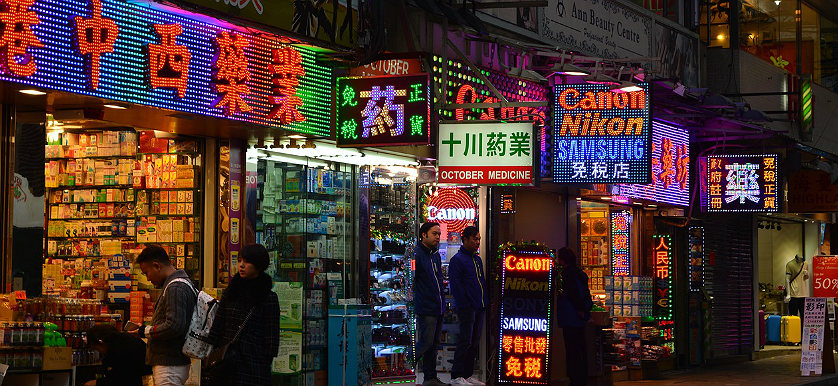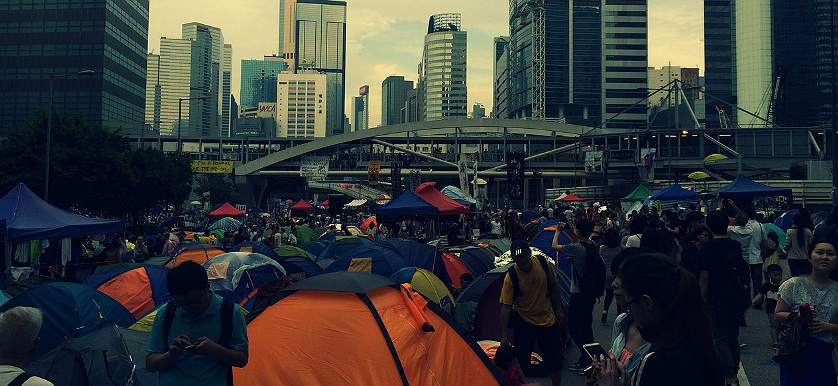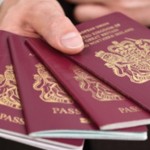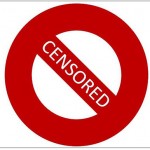The impact of Hong Kong’s protests on Hong Kong’s businesses

Hong Kong is one of the world’s booming economies and a place for international investment and trade. Although Hong Kong’s natural landscape is low in resources, it has established itself as a center for international trade and finance.
It was the world’s 9th largest trading entity in merchandise trade in 2012. The Hong Kong stock exchange is also the 6th largest in the world, with a market capitalization of about US$3 trillion. The economy is dominated by service-related industries for 93% of the GDP in 2012 and accounts for 88% of the total employment in 2013.
However, with 2019 starting out as a bad year for businesses, due to the damaging trading war between Beijing and Washington, followed by the protests that started on the 31st of March, many businesses in the culinary hub and retail suddenly found themselves in deep trouble.
The once luxurious hotels, restaurants and designer boutiques have become a site of violent confrontations between the police and pro-democracy protesters, who are calling for greater political freedom.
A whole host of concerns started to spread among the various professional communities of foreign consultants, investors and executives, who are highly dependent on Hong Kong as a base from which they conduct business in China.
Sometimes, key infrastructure elements, like tunnels and highways, the airport, and the city’s subway become crippled by protests to such a degree that even the Chief Executive, Carrie Lam, said that the protests have hurt the economy more than the 2003 SARS epidemic and the 2008 financial crisis.
The Impact on Business
Businesses in tourism, which are accountable for about 5% of the city’s GDP, representing one of the four key industries in Hong Kong, have taken a huge hit as well. There has been a steady decline in tourist arrivals for the past years, and that means that the hotel occupancy rate will drop as well.
The hotel occupancy rate in August 2018 was 94%. This number dropped to 66% in 2019. This is a huge dip, which has impacted the revenue of many hotels.
The cause for this situation is the fact that several big countries, like the US and Australia, have put out travel warnings for Hong Kong. Moreover, TripAdvisor – one of the most worldwide renown travel companies, have featured a topic discussion on their website called: “Is HK save to travel?”. There have been over 1,100 replies with negative comments, with the majority responding with: “It is not safe to travel”.

As mentioned earlier, this also has a huge impact on restaurants and retail stores, as the streets are blocked, filled with protesters, resulting in the ensuing chaos scaring customers away. Furthermore, since the protests make it tremendously more difficult and perilous to access the streets in general, customers tend to cancel dinner bookings.
Therefore, the businesses in the surrounding areas are even forced to close temporarily sometimes, continuing to suffer from this unfortunate set of circumstances.
On the one hand, some food businesses and convenience stores’ sales rose, since protesters eventually get hungry themselves. On the other hand, given the sheer number of protesters on the streets, it is almost impossible for these businesses to get their shelves stocked, because many delivery companies have a hard time reaching the stores.
The Response of Business
The actions and considerations made by businesses differ from one to another. For example, a few businesses are considering leaving the country altogether. Some are actively looking for new markets, particularly in Singapore, to escape the chaos and find a new safe base for their future operations.
Others, such as Cathay Pacific – the national airline of Hong Kong, has suffered immense losses, as its share price dropped to its lowest value in decades, due to some controversy over employees that had been involved in the protests. The reaction of the company was to fire said employees, but the share price has kept dropping nonetheless, as can be seen in the chart below.

In contrast to bigger businesses, smaller businesses in Hong Kong worry more about the overall economy of the country, as these protests may damage the economy permanently. Some of these businesses have decided to close their shops in solidarity with the protesters, with a few even allowing their employees to protest against the government, because the shop owners respect their employees’ political points of view.
Overall, the long-lasting protests in Hong Kong have had so far mostly bad effects on businesses and the overall economy. Matters will only become worse if the protests keep going, because foreign investors are considering moving out of Hong Kong and tourists keep reconsidering their booked travels.
Given that the country is still deeply embroiled in a state of turmoil, the future of the once booming economy of Hong Kong has become uncertain and nobody knows what it will look like in the near future.
Image sources:

Tags: Business Censoring, Business Ethics, Performance in Hong Kong





